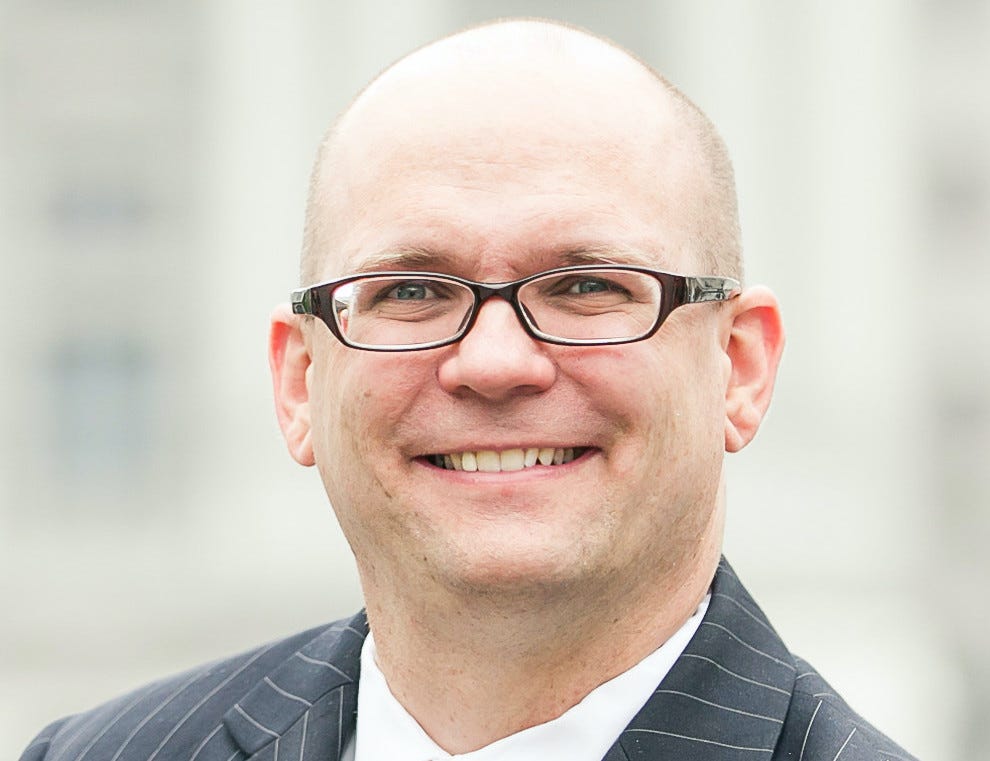Among the signatories to the Freedom Conservative Statement of Principles are leaders skilled in the arts of journalism, digital commuications, and politics.
In the past, we’ve profiled some of the high-profile strategists, commentators, and grassroots activists among our ranks. And we’ve featured writers who effectively contrast Freedom Conservatism with the ideas and priorities of our rivals on both the progressive Left and the nationalist-populist Right.
Today, we spotlight FreeCons skilled at framing critical issues such as environmental regulation, education reform, and fiscal responsibility in ways likely to attract new audiences to our movement.
Bad plastic rap
Patrick Gleason is director of state affairs at Americans for Tax Reform, a Washington-based advocacy and policy research organization founded by Grover Norquist in 1985 at the request of President Ronald Reagan.
A FreeCon signatory, Gleason serves as a Senior Fellow on Tax Reform at the Beacon Center of Tennessee and works closely with other pro-freedom organizations across the country.
He’s a regular contributor to Reuters, Forbes, and the Orange County Register, and has also been published in The Economist, Politico, Wall Street Journal, Chicago Tribune, Los Angeles Times, and San Diego Union-Tribune, among others.
In a recent Asheville Citizen-Times column, Gleason praised the North Carolina legislature for blocking municipal bans or regulations on the private use of disposable plastic bags.
Pointing to a failed ban in New Jersey, he pointed out that “reusable shopping bags must be used 11-59 times to have a net environmental benefit, but in practice the vast majority of people only use them 2-3 times.”
Such regulations impose “new costs” that “effectively act as a regressive tax hike,” he concluded, and may well do “more environmental harm than good.”
Failing over and over
Nathan Benefield is the Senior Vice President at the Pennsylvania-based Commonwealth Foundation and a FreeCon signatory.
He was written extensively on public policy issues including the state budget, public sector labor reform, government spending and taxes, liquor privatization, education, and economic development.
Under Benefield’s leadership, the Commonwealth Foundation’s work on public sector pension law helped drive the bipartisan pension reform of 2017, heralded by the Wall Street Journal and Washington Post as an example for other states to follow.
He’s testified numerous times before state legislative committees and is a frequent broadcast commentator. His writings have appeared in such outlets as the Philadelphia Inquirer and Pittsburgh Post-Gazette.
In a recent appearance on TV station WPMT, Benefield argued that a parental-choice program under consideration by the Pennsylvania legislature could address a court ruling that requires the state to redress inequities in school funding.
“That ruling was saying that every student must have a meaningful opportunity to succeed in education,” he said. “You can’t just do that by saying ‘Hey, we'll give you more money but you have to go to the same failing school that's failing over and over again.’”
Make hard choices
Tom Giovanetti is president of the Institute for Policy Innovation, a conservative, free-market public policy research organization based in Dallas, Texas. He’s also a FreeCon signatory.
Giovanetti speaks and writes often on such topics as taxes, self-government and the Founders' design, civil liberties, judicial supremacy, intellectual property, Social Security personal accounts, and technology policy.
In addition to being published regularly in major outlets such as the Washington Times and FoxNews.com, he has a regular column in the Fort Worth Star-Telegram.
In a recent piece, Giovanetti took federal politicians to task for failing to get the federal budget under control.
The United States is facing a fiscal crisis, and everyone knows it,” he wrote. “Social Security will become insolvent in nine years, forcing a 23% cut in benefits if nothing else is done.
“Social Security and Medicare shortfalls are responsible for 97% of projected budget deficits over the next 30 years. Unless the nation reforms the programs, we face more than $100 trillion in budget deficits that will drive interest on the national debt to unserviceable levels.
“Our Congress and presidents refuse to make the hard choices, establish priorities and deal with the known knowns. And future generations — the next generation — will judge them for it.”
In the mix
• In The Hill, former OMB associate director Vance Ginn observed that the hostile workplace culture at the Federal Deposit Insurance Corporation isn’t its most toxic feature. FDIC regulations “drive assets out of the traditional banking system, even though banks should be efficient credit providers due to their access to deposits,” he wrote. “Small and mid-sized banks are particularly burdened, leading to greater industry consolidation and less competition. This harms consumers by limiting choices and increasing costs.”
• In the Los Angeles Times, AEI fellow Jonah Goldberg challenged the conventional wisdom that the U.S. Supreme Court is driving partisan polarization. The other branches of the federal government are the real culprits, he wrote. “The president is supposed to faithfully execute the law — hence the ‘executive branch’ — and Congress, the legislative branch, is supposed to write the law. Both parties have colluded over decades to ignore this basic division of labor.”
• At National Review Online, Texas Tech scholar Alexander Salter argued that America must win the new space race. “There’s no question about China’s long-term intentions. The CCP views space not as an opportunity for collaborative human flourishing, but a means of solidifying legitimacy at home and increasing its power abroad.”





